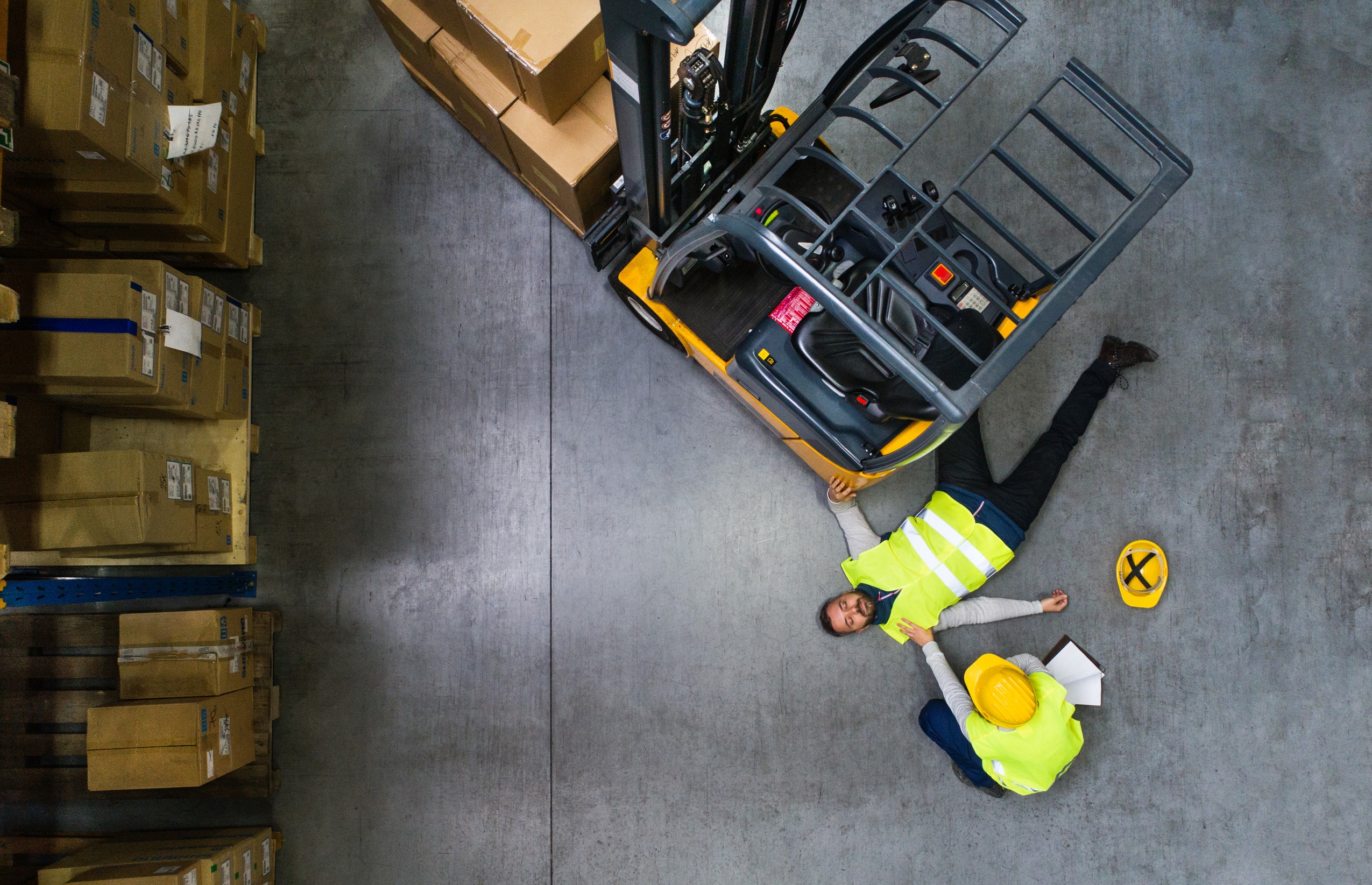Factory environments can be hazardous, especially when safety procedures are overlooked or personal protective equipment (PPE) is not adequately provided. If you’ve suffered an injury in a factory accident, you may be wondering about your legal rights. In this guide, we explain how to sue for factory accident compensation, including who can claim, what evidence is needed, and how much compensation you could receive for an accident at work.
We also explore common types of factory accident claims, the responsibilities of your employer, and how claims can be made on behalf of children or vulnerable adults. With our panel of legal professionals working on a No Win No Fee basis, you can access expert support without upfront solicitor’s fees.
Whether you’ve experienced a soft tissue injury, a crush injury from faulty machinery, or more serious injuries resulting in permanent disability, this guide will help you understand the claims process and your legal options. Start your journey toward justice with How To Sue today.
Contact Us
Our team of advisors are here to help. Get in touch today to learn more by:
- Calling us on 0800 408 7827
- Contacting us online
- Using the live chat feature
Frequently Asked Questions
- How To Sue For Factory Accident Compensation
- How Much Compensation Can I Get For A Factory Accident?
- What Are An Employer’s Responsibilities For Keeping Employees Safe?
- Examples Of Accidents That May Occur In A Factory
- Can My Employer Sack Me For Making A Factory Injury Claim?
- What Should I Do After Being Injured In A Factory Accident?
- Can I Sue For An Accident In A Factory On A No Win No Fee Basis?
- Get Help From How To Sue
- Learn More
How To Sue For Factory Accident Compensation
To make a factory accident compensation claim, you must establish that your employer owed you a duty of care, breached that duty, and caused you to suffer physical or psychological harm as a result. This is the legal basis for any personal injury compensation claim in England and Wales.
Employers must take all reasonably practicable steps to ensure employee safety under the Health and Safety at Work etc. Act 1974. This includes:
- Maintaining machinery and equipment
- Providing adequate PPE
- Ensuring proper training
- Carrying out risk assessments
- Enforcing safe working practices
This duty of care applies whether you are a permanent staff member, a temporary worker, or even self-employed if you are working under someone else’s control in the factory. If your factory injury occurred because your employer breached these obligations, you may have a valid personal injury claim.
Even if you were partially at fault, you may still be able to claim compensation through a split liability agreement, where your compensation is reduced in proportion to your responsibility. Examples include not wearing provided PPE or operating machinery outside of set procedures, but if the employer’s oversight was the root cause, a claim may still proceed.
Am I Able To Sue On Behalf Of A Loved One?
Yes, under certain circumstances, you may be able to sue on behalf of someone else. If the injured person is under 18 or lacks the mental capacity to represent themselves, a trusted adult can act as a litigation friend and pursue the claim on their behalf.
If you apply to be a litigation friend, you will be expected to act in the best interests of the injured party and manage all decisions relating to the accident compensation claim, including communication with legal representatives and the court.
Can I Sue For Fatal Factory Injuries?
If a loved one has suffered a fatal injury in a factory accident due to employer negligence, certain relatives may be able to claim compensation. This can include:
- Bereavement awards for the emotional impact of losing a loved one
- Loss of financial dependency if the deceased supported you financially or contributed to household expenses
- Funeral expenses to cover burial or cremation costs
Claims for fatal factory injuries can be made under the Fatal Accidents Act 1976. Eligible claimants may include spouses, civil partners, children, or other dependents. A personal representative of the deceased’s estate can also bring a claim under the Law Reform (Miscellaneous Provisions) Act 1934. Only the estate can claim for the first 6 months following your loved one’s death. However, the estate can claim on behalf of the dependent relatives at the same time.
To support this claim, evidence of the employer’s breach of duty and its contribution to the fatal injury is essential. This may involve accident reports, witness statements, post-mortem findings, and prior complaints or inspection reports regarding unsafe practices in the factory.
Speak to our team today if you’ve lost a loved one in a factory accident and want to seek justice.
How Much Compensation Can I Get For A Factory Accident?
Compensation in a factory accident claim is typically split into two categories: general damages and special damages.
General damages are awarded for the physical pain, emotional distress, and loss of amenity caused by your injuries. This includes not just the pain you’ve experienced but also how your daily life has been affected. For example, if your injury means you can no longer take part in hobbies or care for your family as you once did, this would be reflected in your general damages award.
To help calculate these damages, legal professionals refer to the Judicial College Guidelines (JCG). The JCG provides a range of compensation brackets based on the type and severity of injury. You can see some examples below, but please keep in mind that these aren’t guaranteed amounts, and the top entry isn’t a JCG figure.
| Injuries | Compensation Guideline |
|---|---|
| Multiple severe injuries, with financial losses included, such as lost earnings. | Up to £1,000,000+ |
| Very Severe Brain Damage | £344,150 to £493,000 |
| Moderate Brain Damage (i) | £183,190 to £267,340 |
| Severe Back Injuries (i) | £111,150 to £196,450 |
| Severe Back Injuries (iii) | £47,320 to £85,100 |
| Chest Injuries (a) | £122,850 to £183,190 |
| Loss of One Arm (i) | Not Less Than £167,380 |
| Below-Knee Amputation of One Leg | £119,570 to £162,290 |
| Total or Effective Loss of One Hand | £117,360 to £133,810 |
| Traumatic Digestive Injuries (i) | £52,490 to £75,550 |
What Can Factory Accident Compensation Help With?
Factory accident compensation can help you recover financially from your injury. You can claim special damages for:
- Lost earnings from time off work
- Medical expenses, including prescriptions and physiotherapy
- Travel costs related to hospital visits
- Property damage (e.g. damaged clothing or equipment)
- Care costs for help with daily tasks
- Future loss of earnings if the injury affects your long-term work prospects
In more severe cases, you may also be able to claim for future medical care, home adaptations, mobility aids, and loss of pension benefits. For example, if your injuries require regular physiotherapy or psychological counselling, these costs can be included in your compensation package.
You will need documented evidence such as bank statements, medical reports, and receipts to support your claim.
Interim Payments
In cases involving serious injuries or multiple severe injuries, it may be possible to apply for interim payments. These are early payments made before a final settlement, intended to help you cover urgent expenses like:
- Rehabilitation costs
- Specialist equipment
- Rent or mortgage payments
- Carers or support workers
- Transportation costs for medical appointments
Interim payments help to relieve the financial strain while the compensation claim is ongoing. They are usually requested once liability has been admitted by the defendant.
These payments can be particularly helpful if your injuries prevent you from working and you’re facing mounting bills. They allow you to access treatment or support services sooner, which could also aid your recovery.
Interim payments are only available if the defendant admits liability. They are deducted from your final compensation amount.
Ask our advisors if you could be eligible for interim payments while your claim progresses.
What Are An Employer’s Responsibilities For Keeping Employees Safe?
Employers have a legal duty to protect their employees from harm by maintaining a safe working environment. Under the Health and Safety at Work etc. Act 1974, this includes providing a workplace that is free from foreseeable risks.
Key responsibilities include:
- Conducting regular risk assessments
- Maintaining equipment and machinery
- Providing clear safety instructions and training
- Supplying necessary personal protective equipment (PPE)
- Monitoring compliance with safety procedures
Failure to meet these obligations can result in workplace injuries. If an employer breached their duty of care, you could be entitled to make a factory accident compensation claim.
The Six Pack Regulations
The “Six Pack Regulations” are a group of health and safety laws introduced to enforce specific employer responsibilities. These regulations include:
- Management of Health and Safety at Work Regulations 1999 – Requires employers to assess workplace risks and implement preventative measures.
- Manual Handling Operations Regulations 1992 – Requires employers to reduce the risk of injury from lifting, carrying, or moving loads.
- Display Screen Equipment Regulations 1992 – Applies to screen-based work and mandates regular breaks, equipment assessments, and suitable seating.
- Provision and Use of Work Equipment Regulations 1998 (PUWER) – Governs the use of factory machinery, ensuring it is safe, maintained, and operated by trained staff.
- Workplace (Health, Safety and Welfare) Regulations 1992 – Sets standards for lighting, heating, ventilation, and cleanliness.
- Personal Protective Equipment at Work Regulations 1992 – Obligates employers to provide suitable PPE and ensure its correct use.
Breach of any of these regulations could result in a valid work claim. These rules work in conjunction with broader legislation to support employee safety and hold negligent employers accountable.
Get in touch to see if your claim relates to a breach of one of the Six Pack Regulations. Or, keep reading for more information on how to sue for factory accident compensation.
Examples Of Accidents That May Occur In A Factory
Examples of negligence-related accidents include:
- Slips and trips – Spills left unattended, poor lighting, or trailing cables in walkways may lead to falls. If the employer fails to implement or enforce proper housekeeping protocols, this could be classed as negligence.
- Injuries from lack of training – Operating forklifts or other heavy equipment without adequate instruction can lead to severe injuries. Employers are responsible for ensuring all operators are trained and assessed for competence.
- Manual handling injuries – Employers who require workers to lift heavy items without mechanical assistance or manual handling training risk claims for back injuries or other soft tissue damage.
- Electric shocks – If electrical installations or equipment are not tested and maintained regularly, and an employee is injured due to faulty wiring, the employer may be liable under PUWER or electrical safety laws.
Each of these examples reflects a situation where the employer may have failed to provide a safe working environment, as required by law. To learn more about how to sue for factory accident compensation, contact our team today.
Can My Employer Sack Me For Making A Factory Injury Claim?
Legally, your employer cannot sack you simply for making a factory accident compensation claim. You are protected under employment law from unfair treatment for asserting your legal rights.
However, there are grey areas. For example:
- If you’ve been employed for less than 2 years, your employer may legally dismiss you without needing to provide a reason.
- You may face unfair treatment disguised as performance-related concerns.
Even if you are dismissed, this does not prevent you from continuing with your accident compensation claim. In some cases, you might also be eligible to make a separate wrongful dismissal claim.
Speak to our team today for confidential support, or keep reading to find out more about how to sue for factory accident compensation.
What Should I Do After Being Injured In A Factory Accident?
Taking the correct steps after a factory accident can significantly strengthen your claim and improve your chances of recovering compensation. Here’s a more detailed guide on what to do:
- Seek medical attention – Your health should always come first. Visit A&E or your GP as soon as possible. Not only is this vital for your recovery, but your medical records will also form a key piece of evidence when proving the extent of your injuries.
- Report the accident – Inform your line manager or supervisor and ensure the incident is recorded in the workplace accident book. If your workplace doesn’t have an accident book, write a dated account of the incident and email it to your employer for documentation.
- Collect evidence – Take photographs of the accident scene, your injuries, any equipment involved, or lack of PPE provided. If any machinery was faulty or hazards were visible, record these clearly. Collect names and contact details of any witnesses who can corroborate your account.
- Track financial losses – Keep copies of payslips, bank statements, and receipts for costs you’ve incurred because of the accident, including transport to appointments, prescription fees, or loss of income.
- Get legal advice – Reach out to experienced legal professionals who can assess whether your employer breached their duty of care and advise you on starting a factory accident compensation claim.
Taking these steps promptly can help ensure that you have a strong foundation for a successful claim. We understand that it can seem daunting to start, but our team are here to help. Get in touch today to get started.
Can I Sue For An Accident In A Factory On A No Win No Fee Basis?
Yes. If you’ve been injured in a factory accident due to someone else’s negligence, you can make a claim on a No Win No Fee basis through our panel of solicitors. This means you won’t pay any solicitor’s fees upfront, and you won’t pay anything at all for our panel’s work if your claim isn’t successful.
This type of agreement is provided by our panel as a Conditional Fee Agreement (CFA). It allows you to access high-quality legal representation without worrying about the financial risk. If your claim is successful, a success fee, which is a legally capped percentage of your compensation, is deducted before your solicitor passes it onto you. This ensures that most of your compensation remains yours.
Choosing to claim with a solicitor that offers a No Win No Fee service provides peace of mind and confidence. You don’t need to let finances hold you back from seeking justice. Our panel of legal professionals will assess your case free of charge, and if you have a strong claim, they will handle everything for you from start to finish.
This fee structure is especially helpful for individuals who may be out of work due to their injuries and facing unexpected medical expenses. It allows you to focus on your recovery, while we handle the legal process.
Get Help From How To Sue
Our team of advisors are here to help. Get in touch today to get started on your factory accident claim by:
- Calling us on 0800 408 7827
- Contacting us online
- Using the live chat feature
Learn More
For more helpful accident at work guides:
- Find out how to sue for an accident in a warehouse
- Get help making a delivery driver accident claim
- Or read our accident at work FAQs
- How To Sue For Assault At Work Compensation
Or, for further resources:
- Get information on first aid from the NHS
- Learn about Statutory Sick Pay (SSP) from GOV.UK
- Find health and safety basics from the Health and Safety Executive (HSE)
Thank you for reading our guide on how to sue for factory accident compensation.




